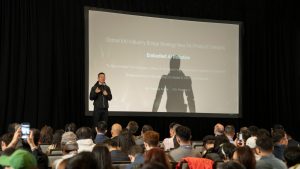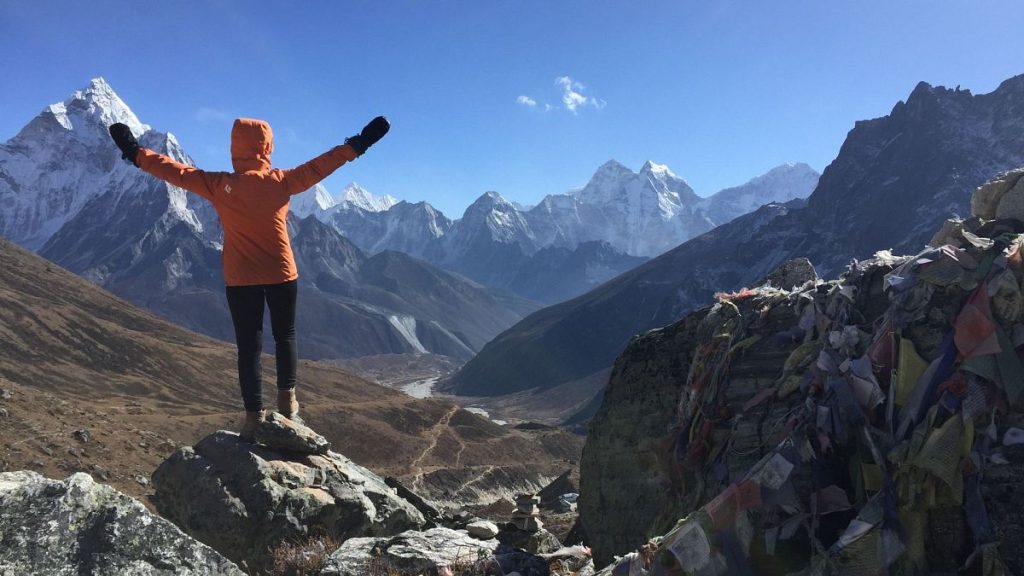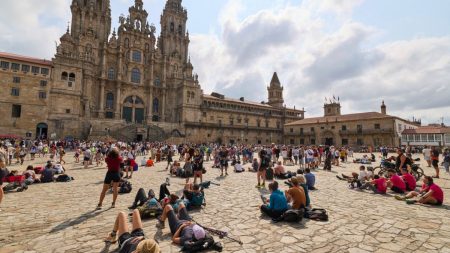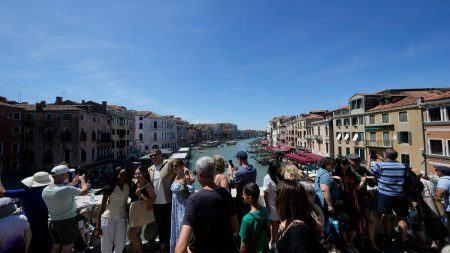Summarize this content to 2000 words in 6 paragraphs in Arabic
Women are encouraged to transform their lives in 2025 through travel and ancient Japanese psychology principles.
ADVERTISEMENTWhen you think of the word sabbatical, do you think of a six-month or year-long career break? What if you could get the same valuable life reboot in just four weeks?Monika Lewicka has always loved to travel and even went on a two-year journey by bike across Cuba “at a time when Fido Castro was president, and there were still no smartphones”. She particularly loves the soul-affirming gifts of solo travel – whether that’s heading into the mountains or going on a shamanic retreat. Over the years, Lewicka has been influenced and inspired by the many myths and ideas she has discovered – from Joseph Campbell’s renowned Hero’s Journey and Logotherapy by Viktor Frankl, to regeneration principles – and Japanese psychology. So it felt like a natural next step for her to create empowered.travel, a ‘solo sabbatical’ company based on these concepts, which launched at the end of 2024.The idea is simple: empowered.travel provides a four-stage self-guided framework across four weeks to help you through any major life transition – or if you’re close to burnout. These travel-focused sabbaticals are focused on women – and that’s because Lewicka believes women often sacrifice their wellness “trying to do everything”. “It’s not just women who need support and a framework for life transitions, but it comes from my experience of a bumpy road,” Lewicka says. “More women than men struggle to realise their greatness and balance their feminine and masculine traits.” And, should you need an accountability partner to help support you through your sabbatical, Lewicka offers 1-1 coaching, too.‘Ichi-go ichi-e’: Taking time for deep rest in the momentThe first stage is a time to leave your usual routine and simply rest.“I believe for any healing and transformation/empowerment, we need to start with deep rest,” Lewicka explains. She advises that you find a place to rent for a week that “invites solitude and silence”. This is to experience the Japanese idiom ‘ichi-go ichi-e’: living – and appreciating – the present moment without distraction.This includes switching off your social media, music and books, and finding a place where you can be at one with yourself as much as possible, and ideally with easy access to nature so you can go for gentle walks. Lewicka finds the best time is out-of-season so that you can maximise being away from other people. But she advises that it shouldn’t be anywhere “too exotic” but rather somewhere you feel comfortable – ideally, somewhere you’ve been before and can reach without taking a flight. One of Lewicka’s lightbulb moments was learning about Morita therapy, a Japanese psychotherapy technique that helps you to live with unpleasant emotions rather than try to eliminate them. “People focus too much on feelings,” she says, “but while thoughts are controllable, feelings are completely uncontrollable. ADVERTISEMENT“Japanese psychology tells us to accept the uncontrollable – then do what needs doing”.A life reboot where you find purposeAfter a week of deep rest, it’s then time to explore the Japanese principle of ‘ikigai’, where you begin to consider your reason for living – and what you wake up for in the morning. “How can we take constructive action if we don’t have purpose?” Lewicka explains. The guidebook that empowered.travel offers has several tools and activities to help you figure this out. You can do this stage anywhere, including at home. ADVERTISEMENTTravel that connects you to people, nature – and yourselfConstructive action is the third phase, and this is a time to go somewhere you’ve never been before and that’s “culturally foreign to you,” Lewicka suggests. “Somewhere that allows for plenty of exploration and connection”. You could stay in accommodation like a hostel or family-run bed and breakfast: the point is to not be alone but immerse yourself in people and experiences.As you explore during your adventure, you might embrace the concept of ‘gaman’ – otherwise known as building resilience by being faced with new challenges, as well as ‘wabi-sabi’: embracing impermanence and imperfection. During this phase, you are also encouraged to develop the spirit of selfless service, known as ‘omotenashi’, by giving your time to people.There are plenty of places where you can do this in Europe, and Lewicka offers many recommendations, including the Slovenian Alps, the Pyrenees in Spain, the Azores Islands in Portugal, the Lake District in the UK, Chamonix in France, and Tromso in Norway. ADVERTISEMENTA few of her favourites for 2025, however, are hiking experiences in the Durmitor National Park in Montenegro or taking a bike tour along the new Trans Dinarica Cycle Route in the Western Balkans.During this time, you’re encouraged to keep a diary to gain better insight into yourself. There are two types of journaling to practice: a self-reflecting or ‘naikan’ journal, which is effectively a gratitude journal, and a morita journal, where you can consider your actions compared to your feelings and thoughts.Unlike most daily journaling practices, for this one, you set an alarm for random times during the day when you just have to stop what you are doing and write.“When I did this stage, I went to Armenia,” Lewicka says. “I was running through a foggy forest in all its states of green when the alarm rang, and so I just stopped and wrote down what I was thinking, feeling, and doing there.” ADVERTISEMENT“It’s striking to see how much you write about the activity, how much we are in our thoughts and feelings – and how unrelated they are,” says Lewicka. “Whenever I was in nature and not on my phone, my thoughts and feelings were very pleasant,” she adds.Coming home is as important as the journeyThe final and arguably most important stage is more time for solitude when you come back home and spend five to seven days introspecting on your experiences. As Lewicka says, “It’s the change that happens when you’re back home”. There are several activities to do during this time, such as reviewing all your existing relationships (friends, families, bosses) and hobbies and identifying what does and doesn’t serve you. The goal is then to develop five actionable and measurable changes to implement over the next 12 weeks. The focus is on the Japanese concept of ‘kaizen’ or action-oriented growth, which is having the discipline to make small improvements that gain momentum, much like the famous ‘Atomic Habits’ concepts developed by James Clear.ADVERTISEMENTLewicka says that travelling with Japanese psychology ultimately helps us to focus our attention so that we become more aware of what’s around us rather than dwelling on what’s inside. “I see so many women around me, and they are just so fantastically capable, but they don’t see it,” she says.
رائح الآن
rewrite this title in Arabic New Year, new you? Take a Japanese-inspired solo sabbatical in 2025
مقالات ذات صلة
مال واعمال
مواضيع رائجة
النشرة البريدية
اشترك للحصول على اخر الأخبار لحظة بلحظة الى بريدك الإلكتروني.
© 2026 جلوب تايم لاين. جميع الحقوق محفوظة.
















